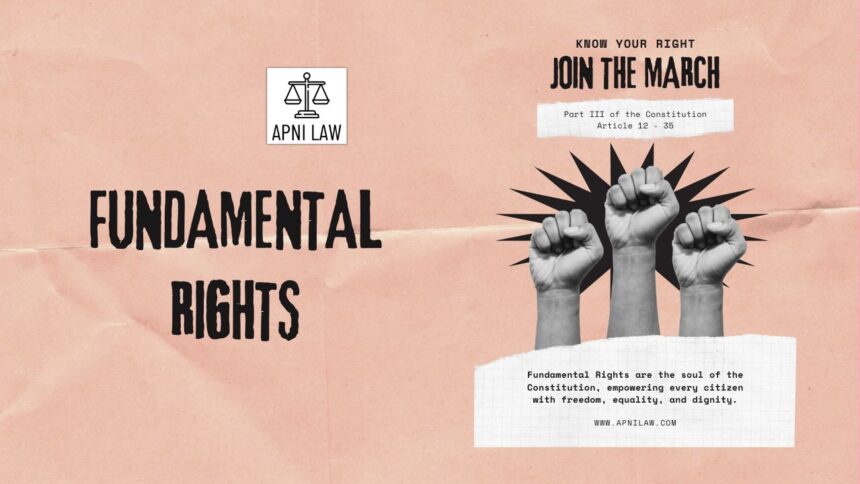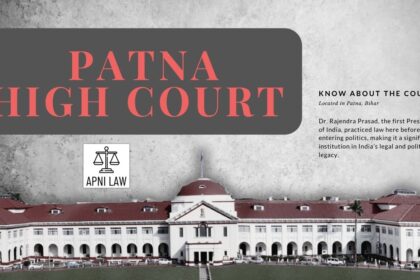Introduction
Fundamental Rights are the backbone of the Indian Constitution, ensuring equality, liberty, and protection against arbitrary state action. Yet, these rights are not absolute. The framers of the Constitution knew that unlimited rights could harm public order, morality, security, or the rights of other individuals. To maintain harmony in a diverse society, they included specific exceptions and restrictions. These limits allow citizens to enjoy their freedoms responsibly while ensuring that larger societal interests remain protected. Over the years, the courts have interpreted these provisions to strike a balance between personal liberty and collective welfare, making the Indian Constitution flexible yet robust.
Why Fundamental Rights Are Not Absolute
Democracy thrives on freedom, but no society can function if rights are exercised without responsibility. For example, freedom of speech is vital in a democratic system, but speech that incites violence or spreads hatred threatens peace. Similarly, the right to assemble loses legitimacy if it disrupts law and order. The Indian Constitution addresses these concerns by placing reasonable restrictions on rights. Inspired by global practices, the framers ensured that rights empower people without creating disorder. This balance makes Fundamental Rights both powerful and sustainable.
Limitations on the Right to Equality
The Right to Equality under Articles 14 to 18 is one of the most celebrated aspects of Indian democracy. However, equality does not always mean identical treatment. The Constitution permits special provisions for women, children, Scheduled Castes, Scheduled Tribes, and other disadvantaged groups. For example, Article 15 allows the state to make laws that favor these sections to correct historical injustices, while Article 16 provides for reservations in public employment. These exceptions reflect the principle of fairness, which sometimes requires treating unequals differently to achieve real equality.
Restrictions on the Right to Freedom
The Right to Freedom under Article 19 is perhaps the most detailed of all Fundamental Rights. It covers freedoms of speech, assembly, association, movement, residence, and profession. Each of these freedoms comes with reasonable restrictions. Freedom of speech and expression cannot threaten sovereignty, integrity, public order, or morality, and cannot amount to defamation or contempt of court. Freedom to assemble peacefully requires prior permission and cannot disturb public safety. Citizens may form associations, but these cannot operate against the interests of national security or public order. The freedom to move and reside across India may be restricted in sensitive areas such as tribal regions or border zones. Similarly, the right to practice a profession does not extend to harmful or illegal activities, as the state can regulate practices to protect public health and morality. These limitations demonstrate that liberty is meaningful only when exercised with responsibility.
Restrictions on the Right Against Exploitation
Articles 23 and 24 prohibit practices such as human trafficking, bonded labor, and child labor in hazardous industries. However, the Constitution permits compulsory service for public purposes if sanctioned by law. For instance, requiring citizens to render military service or participate in community duties does not violate these rights. This shows how personal freedoms are balanced with national and social needs.
Restrictions on the Right to Freedom of Religion
India guarantees freedom of religion under Articles 25 to 28, but this freedom is subject to public order, morality, and health. Religious practices cannot harm society or endanger safety. For example, one may profess faith, but practices that promote violence or discrimination are not allowed. The state also has the authority to regulate secular aspects of religion, such as the management of temples. Social reform laws like the abolition of untouchability and the ban on practices such as sati reflect this balance, where harmful customs are not protected under the shield of religion.
Cultural and Educational Rights
Articles 29 and 30 give minorities the right to preserve their culture and establish educational institutions. However, these institutions are not exempt from general laws. They must still comply with regulations relating to education standards, taxation, and labor. This ensures that while minority rights are protected, they do not function outside the framework of national law.
Suspension of Rights During Emergencies
One of the most significant restrictions on Fundamental Rights arises during emergencies. Under Articles 352, 356, and 360, certain rights, especially those under Article 19, can be suspended. During the National Emergency of 1975, many rights were curtailed, leading to widespread criticism. To prevent such misuse in the future, the 44th Constitutional Amendment safeguarded Articles 20 and 21, ensuring that the right to life and personal liberty cannot be suspended under any circumstances. This reflects a hard-learned lesson that while rights may be limited, their core must always remain inviolable.
Judiciary and Reasonable Restrictions
The concept of “reasonable restrictions” is central to Fundamental Rights, and the judiciary plays an active role in defining its scope. Courts have struck down laws and state actions that impose excessive or arbitrary limits. In Romesh Thappar v. State of Madras (1950), the Supreme Court ruled that restrictions on free speech could not go beyond what the Constitution permits. In Maneka Gandhi v. Union of India (1978), the Court expanded the meaning of personal liberty, holding that any restriction must be fair, just, and reasonable. Judicial review ensures that rights remain meaningful and that the state does not abuse its authority under the guise of public interest.
Frequently Asked Questions
Why are Fundamental Rights subject to restrictions?
Fundamental Rights come with restrictions to balance individual liberty with social order, morality, and national security. Absolute rights could lead to conflict and instability in society.
Can Fundamental Rights be suspended?
Yes, certain rights such as those under Article 19 can be suspended during a National Emergency. However, Articles 20 and 21, which guarantee protection in criminal cases and the right to life, cannot be suspended under any circumstance.
Who ensures that restrictions on Fundamental Rights are reasonable?
The judiciary plays this role by interpreting constitutional provisions and reviewing state actions. Courts strike a balance by ensuring restrictions serve legitimate purposes without being excessive or arbitrary.
Conclusion
The exceptions and restrictions on Fundamental Rights reveal the foresight of India’s Constitution makers. They understood that liberty cannot exist in isolation from responsibility. Rights were designed to empower individuals while ensuring they do not harm society or threaten the unity of the nation. By embedding reasonable restrictions and allowing judicial review, the Constitution ensures that Fundamental Rights remain both meaningful and sustainable. Far from limiting democracy, these restrictions strengthen it by balancing personal freedom with collective welfare.
For any specific query call at +91 – 8569843472








